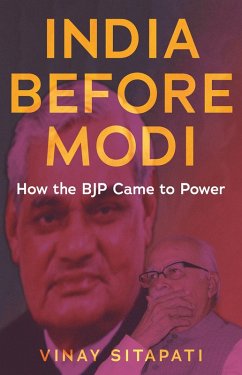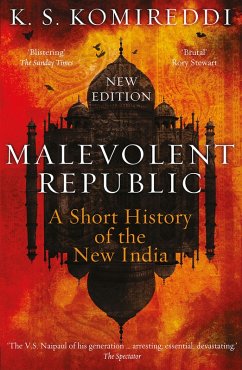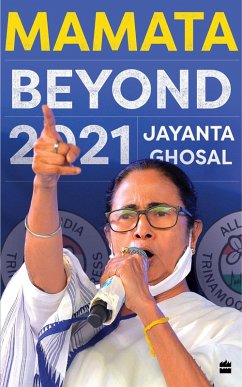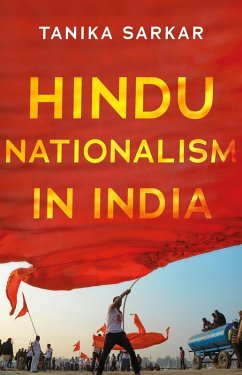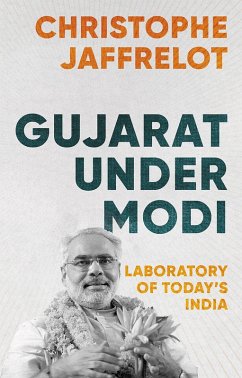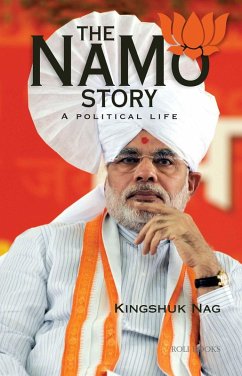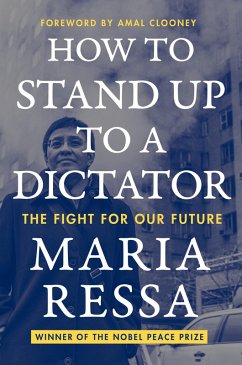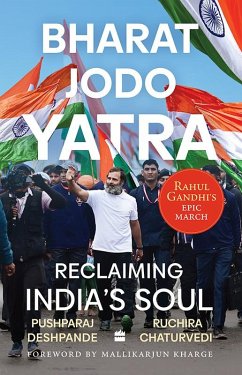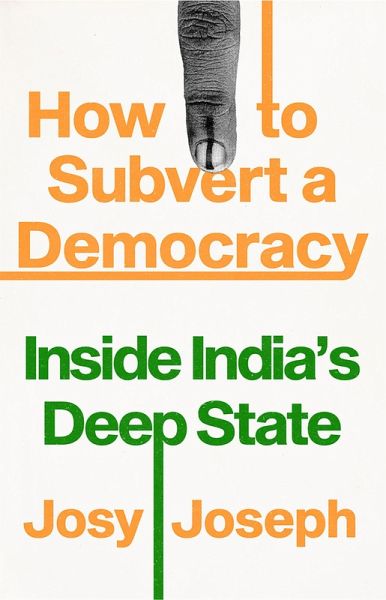
How to Subvert a Democracy (eBook, ePUB)
Inside India's Deep State

PAYBACK Punkte
7 °P sammeln!
India is a democracy at bay. This compelling book puts the spotlight not on political leaders but on the murky workings of India's deep statefrom the police to the federal investigative and intelligence agencies.Traversing the Mumbai train blasts, the Kashmir insurgency, the Gujarat 'war on terror' and the Delhi riots, Josy Joseph reveals corruption and political agendas running through the core of agencies that should ensure justice and accountability, and shows how this has undermined democracy. In 2020, amid the Covid-19 pandemic, India's democratic pillars suffered another blow: the arrest...
India is a democracy at bay. This compelling book puts the spotlight not on political leaders but on the murky workings of India's deep statefrom the police to the federal investigative and intelligence agencies.
Traversing the Mumbai train blasts, the Kashmir insurgency, the Gujarat 'war on terror' and the Delhi riots, Josy Joseph reveals corruption and political agendas running through the core of agencies that should ensure justice and accountability, and shows how this has undermined democracy. In 2020, amid the Covid-19 pandemic, India's democratic pillars suffered another blow: the arrest of activists, dissidents and journalists opposed to Narendra Modi's government, some on dubious charges, others under stringent anti-terror laws.
Some contend that Modi has simply perfected the art of subverting a democratic state's security establishment, bending it to his will. With false arrests, the overlooking of right-wing Hindu terror, an establishment bias against Muslims and an unenviable human rights record that has often relied on extrajudicial killings or false testimonies, India's domestic security institutions have become just another player in pursuit of power. How did this happen? And why does India, the world's largest democracy, often subvert the very ideals of democratic politics when dealing with security challenges?
Traversing the Mumbai train blasts, the Kashmir insurgency, the Gujarat 'war on terror' and the Delhi riots, Josy Joseph reveals corruption and political agendas running through the core of agencies that should ensure justice and accountability, and shows how this has undermined democracy. In 2020, amid the Covid-19 pandemic, India's democratic pillars suffered another blow: the arrest of activists, dissidents and journalists opposed to Narendra Modi's government, some on dubious charges, others under stringent anti-terror laws.
Some contend that Modi has simply perfected the art of subverting a democratic state's security establishment, bending it to his will. With false arrests, the overlooking of right-wing Hindu terror, an establishment bias against Muslims and an unenviable human rights record that has often relied on extrajudicial killings or false testimonies, India's domestic security institutions have become just another player in pursuit of power. How did this happen? And why does India, the world's largest democracy, often subvert the very ideals of democratic politics when dealing with security challenges?
Dieser Download kann aus rechtlichen Gründen nur mit Rechnungsadresse in A, D ausgeliefert werden.




